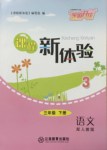题目内容
【题目】假定英语课上老师要求同桌之间交换修改作文,请你修改你同桌写的以下作文。文中共有10处语言错误,每句中最多有两处。每处错误仅涉及一个单词的增加、删除或修改。
增加:在缺词处加一个漏字符号(∧),并在其下面写出该加的词。
删除:把多余的词用斜线(\)划掉。
修改:在错的词下画一横线,并在该词下面写出修改后的词。
注意:1.每处错误及其修改均仅限一词;
2.只允许修改10处,多者(从第11处起)不计分。
My friend Li Wei looks shy and childish, but in fact she is outgoing and bravely. She has many friends. Some are of her ages and some are very much older. She even makes friends in strangers. Last year, where we met two American tourists on a bus, she started to practice speak English with them. Now they have become pen pals. With their friends she talks about hobbies, childhood stories and something that interests them. Li Wei is quite active in class. She wants answer all the teachers' questions. Sometimes she tried to correct their mistakes, too!
【答案】1.bravely→brave
2. ages→age
3. 去掉very
4. in→with
5. where→when
6. speak→speaking
7. their→her
8. something→anything
9. wants后加to
10. tried→tries
【解析】
本文为一篇记叙文,讲述了我的朋友李微的一些日常生活。
1. 考查形容词。句意:我的朋友李微看起来很害羞和孩子气,但是实际上,她外向,并且勇敢。在这句话中是跟在系动词is后作表语,需要用形容词。故将bravely改为brave。
2. 考查固定短语。句意:有一些朋友和她年纪相仿,也有一些岁数要稍大一些。这里表达的意思是年纪相仿,使用固定结构of one’s age表达“和某人同一年纪”,所以age不需要用复数。故将ages改为age。
3. 考查副词。这里要表达的意思是岁数要稍微大一些,very much的意思是“非常”,和句意不符。所以去掉very,用much来修饰比较级older,表示岁数大一些。故去掉very。
4. 考查介词。句意:她喜欢和陌生人交朋友。在表达“和某人交朋友”时,用make friends with sb.这一结构。故将in改为with。
5. 考查状语从句。句意:当我们在车上碰到两个美国人时,她开始和他们练习英语。在这个状语从句中,要表达的是时间“当…时候”,而不是地点。故将where改为when。
6. 考查非谓语动词。句意见上一题。我们在表达“练习做某事”的时候,我们用practise doing sth这一结构。故将speak改为speaking。
7. 考查代词。句意:她和她的朋友谈论爱好、童年故事和他们感兴趣的任何事情。这里讲到的是李微和李微的朋友会聊天,所以代词不应是他们的朋友,而是李微的朋友。故将their改为her。
8. 考查不定代词。句意见上一题。这里说的是他们感兴趣的任何事情,而不是一些事情。故将something改为anything。
9. 考查动词固定搭配。句意:她想回答老师的所有问题。我们用want to do来表示“想做”。故在wants后加to。
10. 考查时态语态。句意:有时她也尝试指正老师的错误。整篇文章用的是一般现在时,并且这里也有sometimes这一时间状语标志,所以这句话要用一般现在时。然后她和“尝试”之间是主动关系,所以用tries。故将tried改为tried。

 芝麻开花课程新体验系列答案
芝麻开花课程新体验系列答案